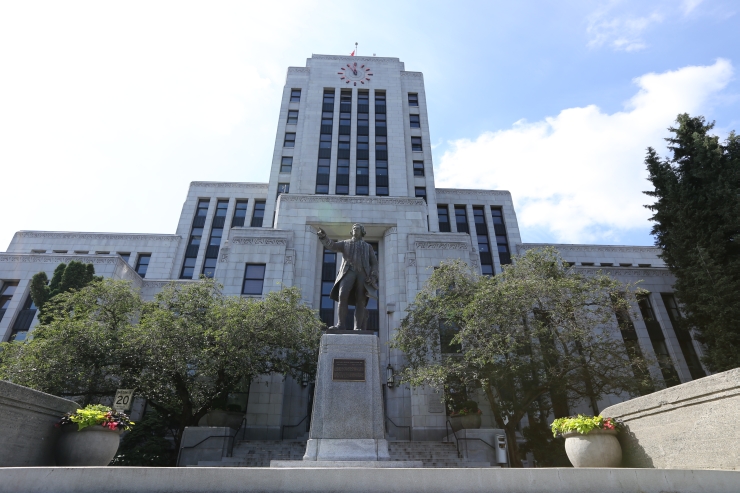The City of Vancouver is moving ahead and changing how candidates’ names appear on the ballot come voting day. This is after one councillor said ballots in alphabetical order gave an unfair advantage to those whose last names start with A, B, C and D.

So, during the city’s next municipal elections, mayoral, councillor and Park Board commissioner candidates will show up in random order.
“Research has shown many voters are more likely to vote for those listed first on a ballot, meaning that candidates at the top of an alphabetical list are perceived to have an advantage over those lower down,” read a statement from the city.
Coun. Andrea Reimer, who spearheaded the motion, says this will even the odds.
WATCH: Vancouver considers allowing permanent residents to vote in municipal elections

“People who have all the qualities that we would hope for an elected official tell me that they’re not going to run because they don’t believe they have any chance because their last name starts with an ‘M’ or an ‘R’ or an ‘S’ or God forbid, a ‘W’ or a ‘Z,’” Reimer said.
The city has set aside $235,000 to help inform residents about the changes.
Reimer said that even though she’s not seeking re-election, this is an issue that she has thought needed to be addressed for some time.
The motion passed but was opposed by Councillors Melissa de Genova, Elizabeth Ball and Adrienne Carr.

Get breaking National news
Carr says her concerns came up after doing some research on the topic.
“Some members of our city’s seniors advisory committee and the peoples with disabilities advisory committees expressed concern, especially for those who use the alphabetical listing of names as a real clue to help them find the candidates they want to support.”
Carr also isn’t sure about the possibility of adding photos to help voters identify candidates.
“Inclusion of photos might have a negative impact and show, in fact, or expose people’s prejudices in terms of whether somebody looks good or not, or gender, or ethnic background,” she said.
One round of randomization might not be enough
While the idea of randomized ballots may already seem like a stretch for some — others say it needs to happen more than once to be be effective.
Michael Gellar, who previously ran as an NPA candidate in the City of Vancouver, says it’s the people in the middle of the alphabet who are actually affected negatively by the alphabetical listing.
“And it has to do with the habits of voters, and a tendency to start at the top of the list, and start ticking names on a very large ballot from the top, and then from the very bottom.”
Gellar suggests ballots be printed with every candidate’s name at the top an equal number of times.
“If the city was going to print 300,000 ballots, and there were 30 candidates, a certain number of ballots would have each person’s name at the top or at the middle or at the bottom,” he said.
“That way there wouldn’t be no advantage.”
Are there other ways to make voting more fair?
Research Co president Mario Canseco shares one example of how changing up the ballot system has turned out elsewhere.
“In Mexico for instance, what they do is they list the parties the candidates are running on there by how they’ve existed,” he said.
“So if you’re running for one party that has been there the longest, you get the number one spot, and then the number two spot goes to the next party that has been existing for as long as they have.”
He says no matter which way the names are listed on the ballot, someone’s going to be unhappy. Especially with the number of people expected to run.
“We might be in a situation where we have twenty to thirty council candidates, maybe fifteen to twenty candidates for school board, and at this stage we already have seven people who have said they want to run for mayor of Vancouver,” he said.
“We’re bound to have a large ballot and depending on the number that you get, you might be happy with the randomization but somebody who is used to being on the top three or four spots in the ballot might actually be upset if they end up lower.”
Because of the current provisions in the Vancouver charter, the order of names can only be randomized once.











Comments